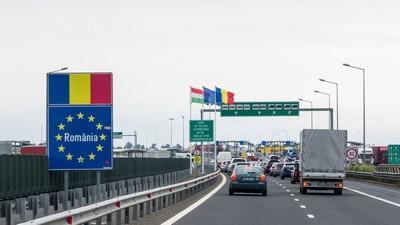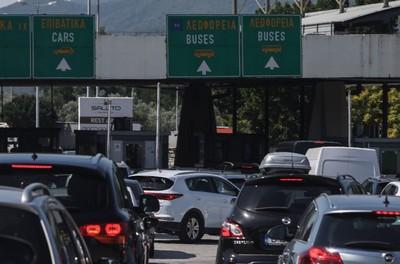
Bulgaria, Greece fine-tune details to lift border controls
Newswire
Sofia: Bulgaria and Greece have agreed on the details on how to completely abolish border controls between them, according to a communique by the Bulgarian interior ministry published on Wednesday (11 December).
The two countries declared their readiness to lift border controls on 1 January 2025, at a meeting between their police services at the largest common border crossing point Kulata-Promachon.
The complete abolition of border controls between Bulgaria and Greece will become a reality if, at Thursday’s Justice and Home affairs Council, EU interior ministers rubber-stamp the full accession of Bulgaria and Romania to the Schengen area.

The expectations are more than optimistic, after Austria officially announced two days ago that it was officially lifting its veto.
The Netherlands, the other country that stood in the way of Sofia and Bucharest, also gave the “green light” for the full admission of Bulgaria and Romania to Schengen. The Parliament in The Hague supported the government’s decision taken a few days ago, but not without some resistance.
Earlier on Wednesday, the largest party in the Dutch governing coalition, Geert Wilders’ Freedom Party, tried to pass a declaration insisting that the government vote against Bulgaria and Romania.
However, the declaration was rejected by a majority of lawmakers. Some of the other parties in the ruling coalition in the country also voted against it.
Thus the accession of Bulgaria and Romania to Schengen by land is the first agenda item at the ministerial meeting. The draft decision, unanimously approved by EU ambassadors at the end of November, states that the controls will be abolished as of 1 January 2025.
Bulgaria and Romania have accepted a number of conditions to smoothen the process of lifting the borders, as announced at a recent meeting of the interior ministers of Bulgaria, Romania, Austria and Hungary in Budapest.
With the full accession of Bulgaria to Schengen, a joint group of 100 police officers from Bulgaria, Romania, Hungary and Austria will be deployed at the border with Turkey, and participate in the controls there.
The deployment of the joint group was one of Austria’s main conditions for lifting its veto against Sofia and Bucharest.
Also upon Vienna’s request, random border controls will be in place at the Bulgaria-Romania border for at least another six months. The controls will be similar to those border checks re-introduced by some Schengen area countries.
Conversely, the borders between Bulgaria and Greece won’t be subject to such controls, the ministry of interior in Sofia explained.
